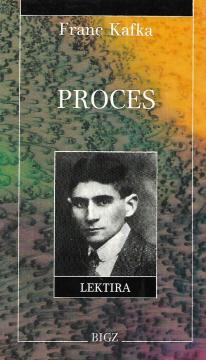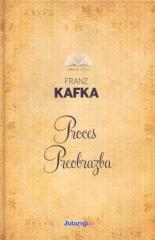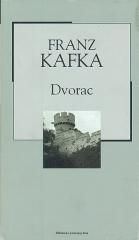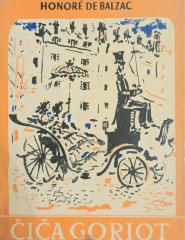
Proces
Kafka schrieb „Der Prozess“ zwischen 1914 und 1915 und veröffentlichte es posthum im Jahr 1925. Der Roman ist unvollendet, wurde aber um ein letztes Kapitel von Max Brod ergänzt. Ausgabe mit einem Vorwort von B. Živojinović und einem Nachwort von Walter K
Jozef K., ein Bankangestellter, wacht an seinem Geburtstag auf. Die Agenten Wilhelm und Franz haben ihn wegen eines unbekannten Verbrechens verhaftet. Er wird nicht ins Gefängnis gesteckt, sondern mit der Anweisung freigelassen, abzuwarten und sein normales Leben fortzusetzen. Er fühlt sich überall überwacht, küsst seine Nachbarin Fräulein Bürstner und wird zu einer Anhörung geladen.
Er kommt in einen heruntergekommenen, mit Publikum gefüllten Dachboden-Gerichtssaal. Der Richter wirft ihm Verspätung vor, K. hält eine flammende Rede gegen das System, und die Szene eskaliert mit öffentlichem Sex zwischen dem Vorgesetzten und seiner Frau. Ihm wird klar, dass die Anschuldigung nicht öffentlich gemacht wurde. Er kehrt allein zurück, wird von der Frau des Angestellten verführt, aber von einem Studenten weggezerrt. Er klettert durch ein bürokratisches Labyrinth und wird von einer Frau aus dem Büro beruhigt.
In der Bank sieht er einen Prügelmann, der die Agenten bestraft. Sein Onkel bringt ihn zum Anwalt Huld, dessen Geliebte Leni ihn verführt. Huld erklärt die mutmaßliche Schuld und das mehrstufige Gericht. Ein mysteriöser Gerichtsschreiber erscheint. Der Hofmaler Titorelli bietet drei Möglichkeiten: Freispruch (unmöglich), Aufschub (ewig) oder Verurteilung.
In der Kathedrale erzählt der Priester ein Gleichnis von einem Bauern vor der Tür des Gesetzes. Im Dorf trifft er ein Mädchen und Titorelli. Nach einem Jahr bringen ihn zwei Männer in einen Steinbruch und töten ihn mit einem Messer ins Herz – „wie einen Hund“. Die Anklage bleibt geheim, sein Leben endet im Absurden.
One copy is available





